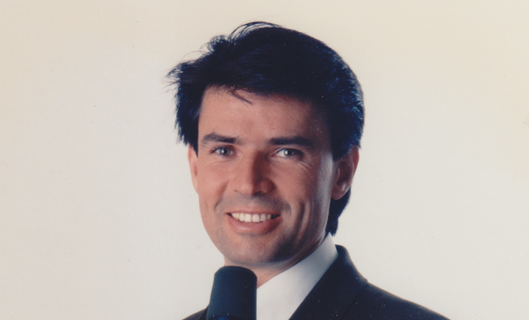Subscribe to the podcast via: iTunes | Spotify | Google | Youtube
One of modern wrestling's greatest secrets in 1995 was the ability to disguise bankrollers. To most, Vince McMahon in the WWF was a jovial commentator who seemed to have an uncanny knack of not being able to remember wrestling moves, if he even knew them at all. It almost makes you wonder why he would be placed in such a position bearing this somewhat required lack in ability... In 2015, the Junior to his father is a household name and is widely recognised as the governing hand over the industry as a whole. However, back to twenty years ago, his on-screen rival would take place in the form of (Billionaire) Ted Turner.
The owner of Turner Broadcasting Services was not depicted as an on-camera persona in WCW, although he did appear during 1994 and was referenced at times on television. His place was clearly outlined in Atlanta, even if not quite parodied in New York for the moment. Yet, WCW would have another young pretender to the throne who would more than pay homage to the Vince McMahon school of political smoke and mirrors.
Eric Bischoff was a young man in 1995, but going back to the turn of the decade, he was even younger. Bischoff was merely an announcer at this point, contributing backstage interviews with the lesser WCW wrestlers. A friendly face with a plastic smile that could go on to create a trend for the likes of Todd Pettengil to forge a career from (Cheers, Easy-E). This faith in the young former sports announce assistant was seemingly quashed upon the declaration of war in WCW towards the middle of the decade where the AWA & WWF veteran 'Mean' Gene Okerlund would take over this role on a mainstream basis. For where WCW perhaps lost this balance from an in-ring standpoint in the months and years to come, replacing potential with experience could not be argued with Bischoff & Okerlund - the latter was easily the best interviewer of his time and quite possibly remains such to this very day.
But, what of young Eric? Between the few years of 1993-95, the casual fan of WCW Saturday Night, Clashes and PPV's could almost be forgiven for forgetting Bischoff. No longer would he be seen week-to-week trying to get interviews out of grizzled veterans with little time for his endeavours or dressing up as Count Dracula amongst other guises. It's easy to award the political heavyweight prize to Hulk Hogan in mid-nineties WCW, but Eric Bischoff was by no means a slouch.
Since being hired by the Company in 1991, Bischoff's role was modest at best. While 'Cowboy' Bill Watts still ran the show and WCW was still strictly a "wrasslin'" show, the youngster's responsibilities rarely ventured beyond the aforementioned announcing and interview spots. However, upon the departure of Watts in 1993, Bischoff would apply for a new role in the company which many then - and some to this day still - couldn't quite believe he could even be seriously considered for. Let alone be successful. Eric Bischoff, executive producer.
The two main candidates for this role were Watts' long-time deputy Jim Ross & WCW main-stay Tony Schiavone. Upon Bischoff's appointment, Ross would soon be WWF-bound, several higher-up's would later tender their resignation and Schiavone would remain in his current position. For the time, both were still relatively young, but shared a wealth of experience within the business - as opposed to Bischoff's more future-friendly look and business acumen. Gaining such a prominent position in a national organisation - not bad for a guy still a couple of years from forty.
It wouldn't end there. Given the major shifting of the office tide in WCW, Bischoff would preside over the new-found affluence of Ted Turner and was given the opportunity to prove his choice of promotion in the years to come. By 1994, Bischoff had managed to convince Turner to hire Mr WWF - Hulk Hogan. Within six months he had drawn some of the highest ratings and buy-rates the company had seen, shifted TV tapings to Metro-Goldwyn-Mayer & Disney studios in Orlando and actually gained WCW its first annual profits since the company's takeover in the late eighties. This would all occur under his new position - Eric Bischoff, Vice President.
Bischoff had created a dichotomy, of sorts. He cut costs – to afford Hulk Hogan. He scaled back on television costs – to create better television. To create more pay per view revenues - he made more of them, and charged more. For once WCW had someone with a business head on who could see the bigger picture beyond the 18x18 ring, even if this ring rotated. By mid-1994 Bischoff believed WCW had the better product than the WWF (and at the time, he was probably right). All he wanted to do was prove it. Hogan, in theory, was the golden ticket.
All of this would be achieved within the space of four years. It would be March of 1995 when he would turn 40-years-old. By this time he was genuinely one of the top power players within the entire business, a legitimate example of Uncle Sam's American Dream. With a blank chequebook, some incredibly influential political allies and with no intention of taking stock of his success to allow the competition up north to regain some lost traction in the absence of their notable big-name talent.
Would this be the zenith of Bischoff's impeccable record of achievement with WCW? Far from it.
By Del Muir

 RSS Feed
RSS Feed